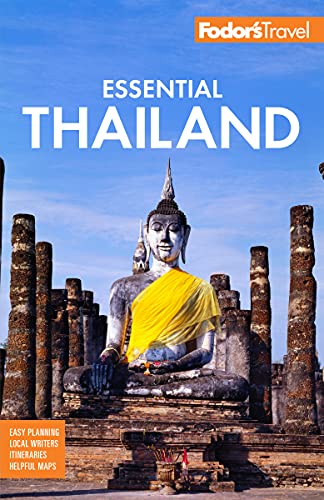Thailand Today
Political Strife. Business tycoon Thaksin Shinawatra, of the populist Thai Rak Thai party, was prime minister of Thailand between 2001 and 2006. Ever since, he has had devoted followers—and foes. Those political rifts have divided Thais for years, the last several of which have seen violent protests and crackdowns. In 2006, Thaksin was overthrown in a bloodless military coup while traveling overseas, and he went into exile. A general election in 2007 brought in the pro-Thaksin People's Power Party (PPP), run by Samak Sundaravej. Many considered him to be a puppet for Thaksin. He was dismissed in 2008 on a technicality: illegally hosting a cooking show while holding office. Meanwhile, political riots escalated in 2008, at times halting government operations and even temporarily shutting down the international airport. The worst riots in nearly two decades broke out in April and May 2010, when the anti-government "Red Shirts" staged protests across Bangkok. For weeks business and politics remained at a standstill until the military crushed the protests. Hundreds of people were injured and several killed as central Bangkok became a war zone. Nothing was resolved. Protesters went home but vowed to continue their fight against the government. In July 2011, Yingluck Shinawatra, the younger sister of Thaksin, led the Pheu Thai Party to victory and became prime minister. She oversaw a contentious political period through May 7, 2014, when she was removed from office for abuse of power. After yet more protests, on May 20, 2014, the military seized control, implemented martial law, repealed the constitution, ousted several former cabinet members, and put a tight rein on the country under the National Council for Peace and Order with General Prayuth Chan-ocha at the helm. On April 2, 2015, the government lifted martial law and replaced it with a controversial security order that gives the military junta widespread powers. And the political drama marches on.
Ethnic Diversity. Throughout its history, Thailand has absorbed countless cultural influences, and is home to groups with Chinese, Tibetan, Lao, Khmer, Malaysian, Burmese, and other origins. Migrating tribes from modern-day China, Cambodia, Myanmar, and the Malay Peninsula were the region's earliest inhabitants. Ancient trade routes meant constant contact with merchants traveling from India, China, and other parts of Southeast Asia. Conflicts and treaties have continued to alter the country's borders—and ethnicity—into the 21st century. Contemporary Thailand's cultural richness comes from its ethnic diversity. Though Buddhism is the predominant religion, Hindu and animist influences abound, and there's a significant Muslim population in the south. Malay is spoken in the southern provinces; Lao and Khmer dialects of Thai are spoken in the northeast; and the hill tribes have their own dialects as well.
Mysticism. Many Thais believe in astrology and supernatural energy. The animist element of Thai spirituality dictates that everything, from buildings to trees, has a spirit. With so many spirits and forces out there, it's no surprise that appeasing them is a daily consideration. Thais often wear amulets blessed by monks to ward off evil, and they believe that tattoos, often of real or mythical animals or magic spells, bring strength and protect the wearer. Car license plates with lucky numbers (such as multiple nines) sell for thousands of baht; important events, such as weddings, house moves, and even births, are arranged, when possible, to fall on auspicious days, which are either divined by shamans or consist of lucky numbers. Newspapers solemnly report that politicians have consulted their favorite astrologers before making critical policy decisions. Businesses erect shrines to powerful deities outside their premises, sometimes positioned to repel the power of their rivals' shrines.
The importance of Sanuk.That's the word for Thai fun. Thais believe that every activity should be fun—work, play, even funerals. Of course, this isn't always practical, but it's a worthy aim. Thais enjoy being together in large parties, making lots of noise, and—as sanuk nearly always involves food—eating. They are also guided by a number of other behavior principles. Many, such as jai yen (cool heart) and mai pen rai (never mind), are rooted in the Buddhist philosophies of detachment, and result in a nonconfrontational demeanor and an easygoing attitude. Giving and sharing are important, since being generous is an act of merit making, a way of storing up points for protection in this life and in future lives.




